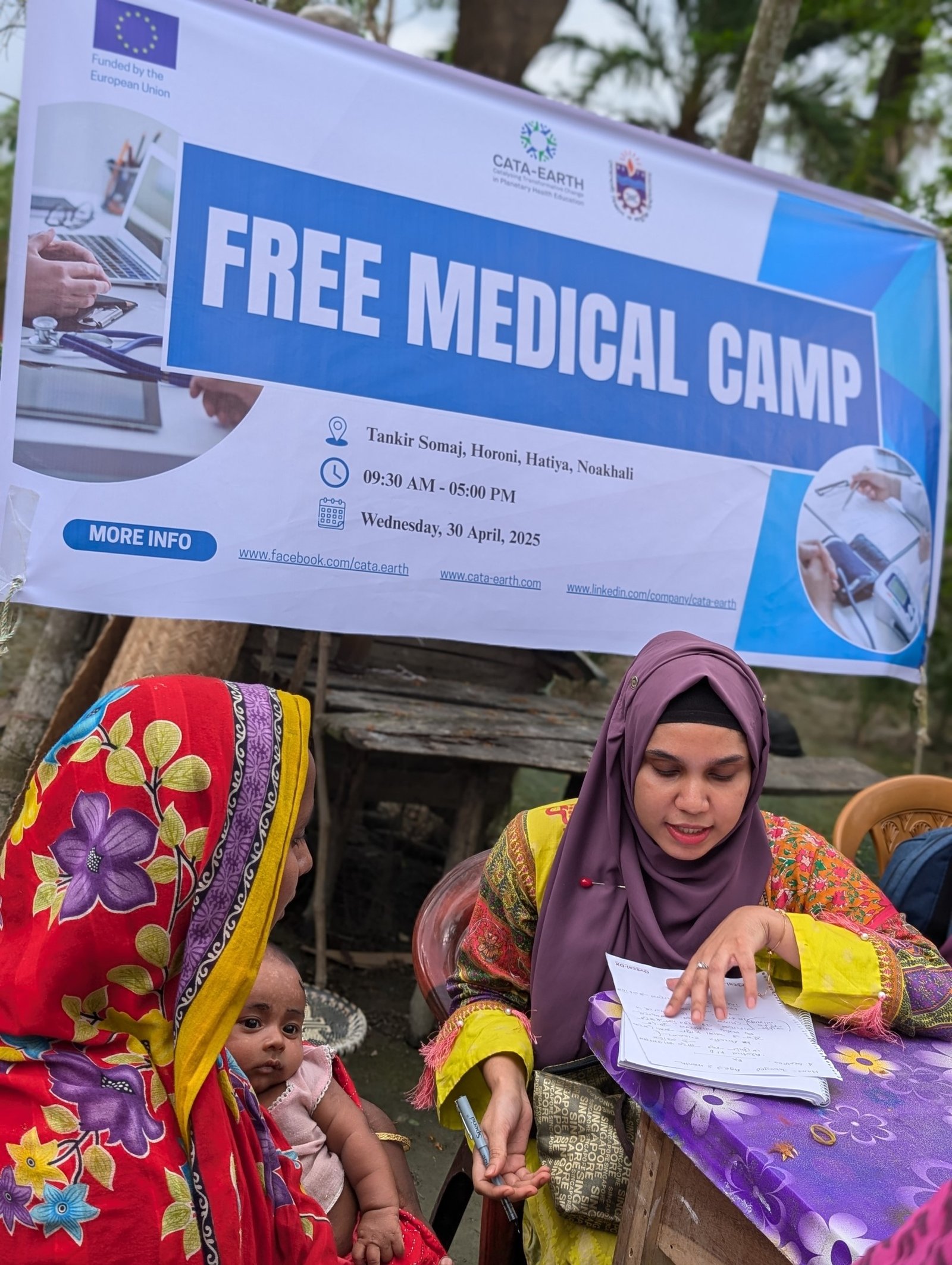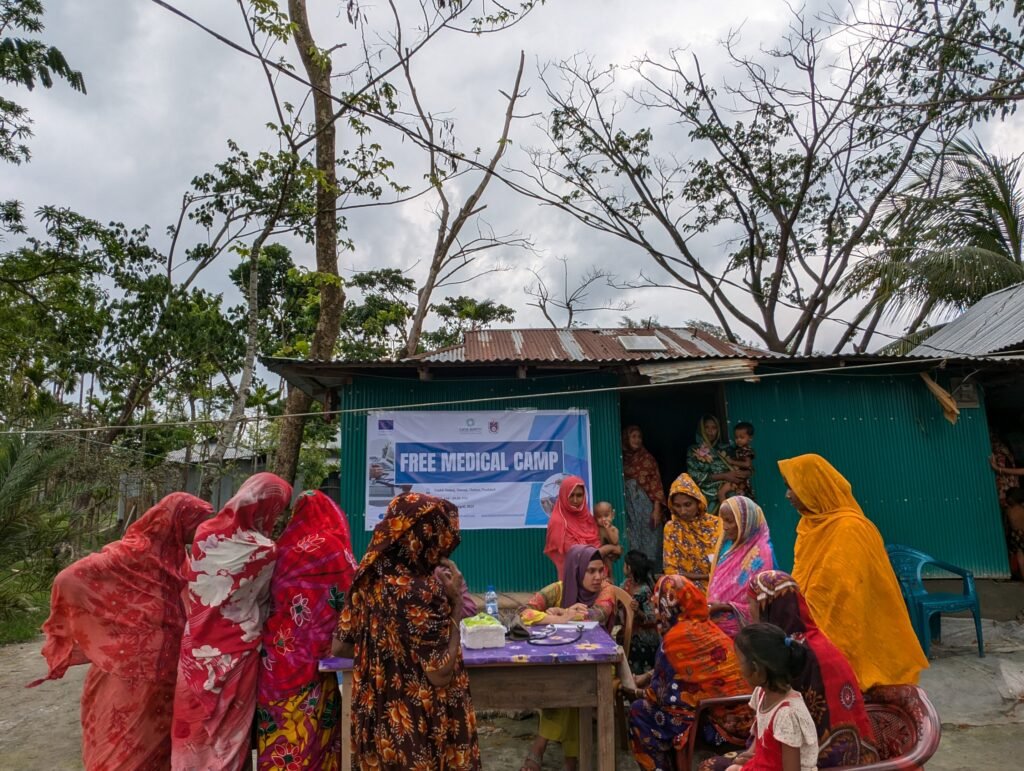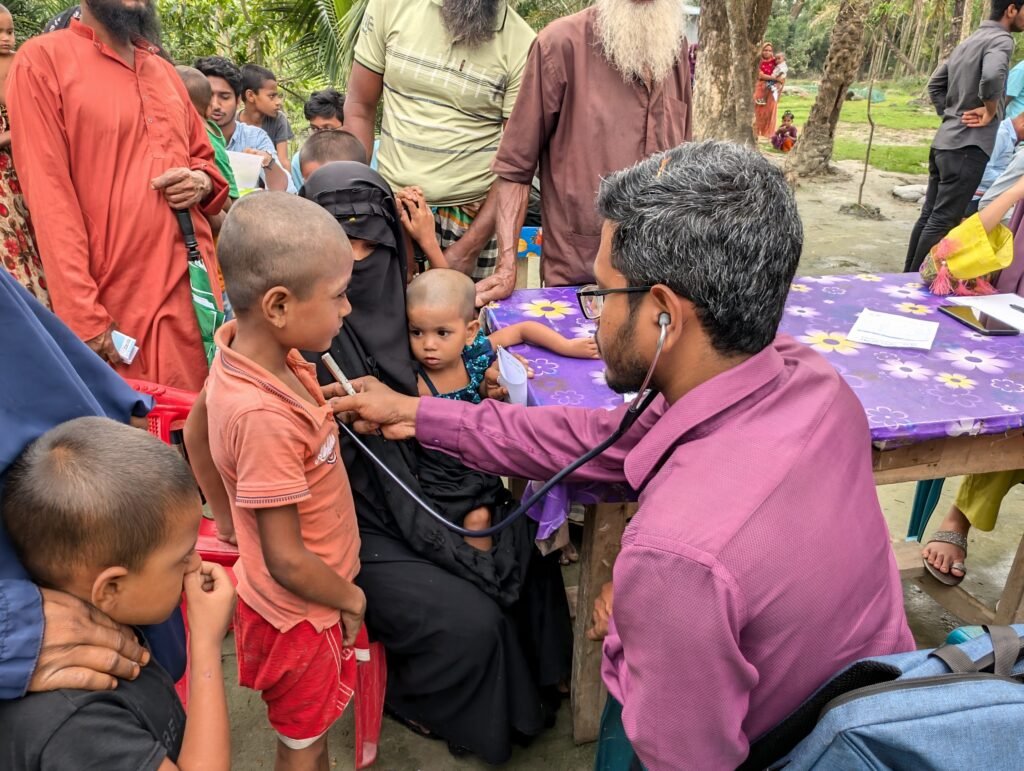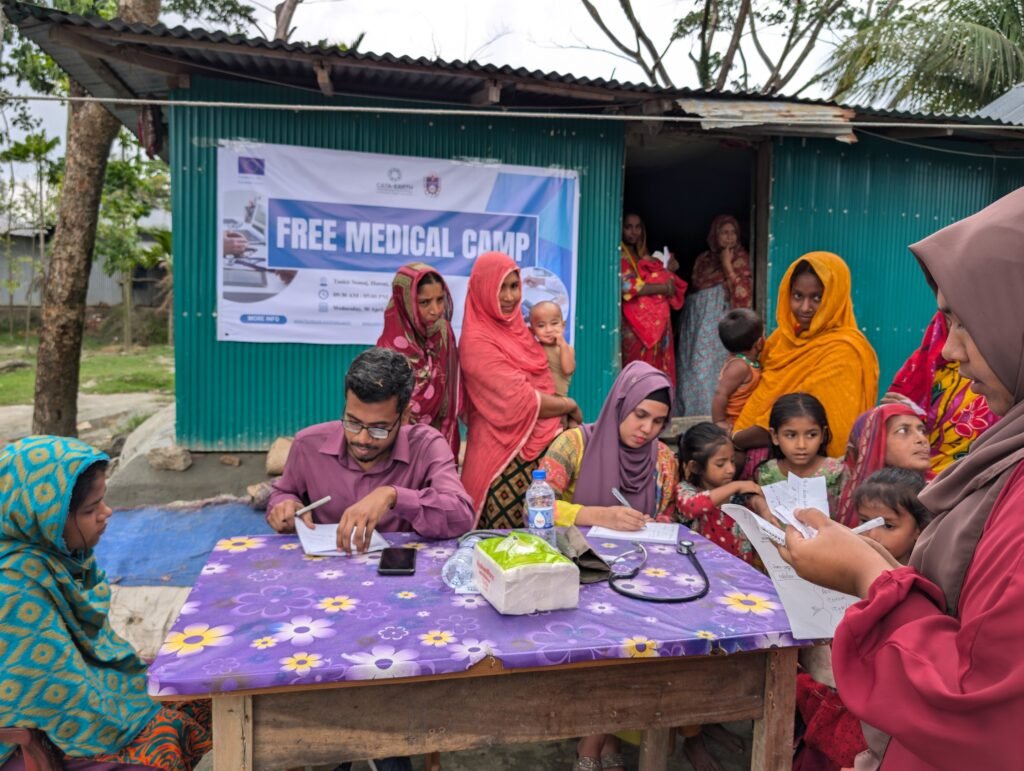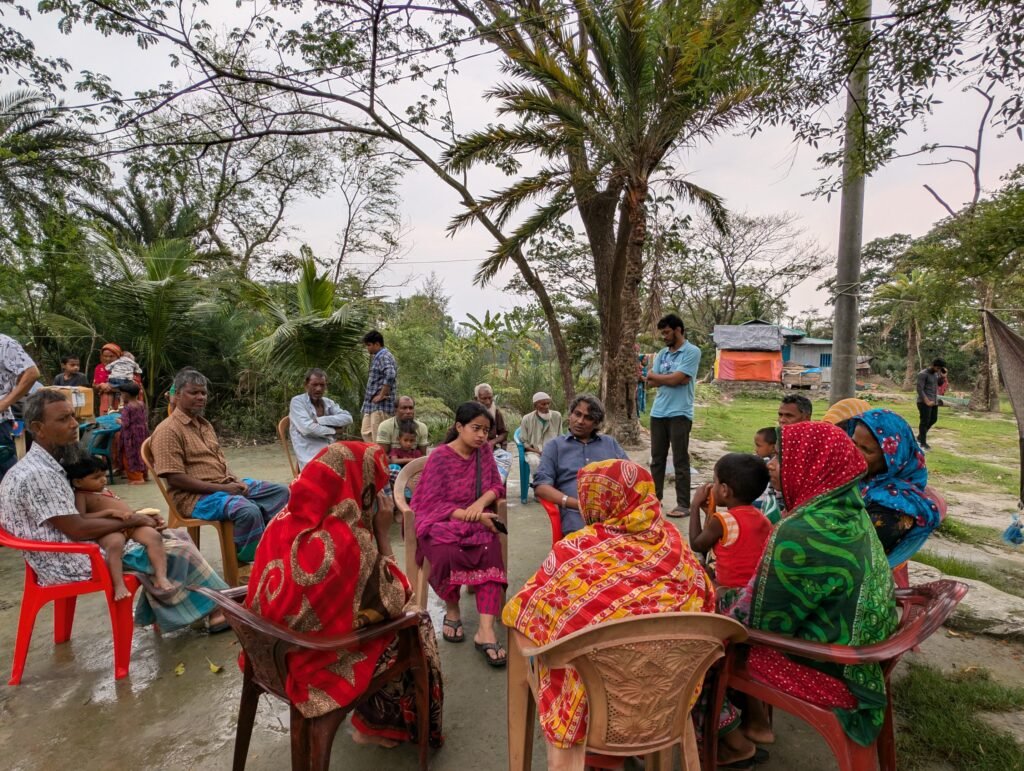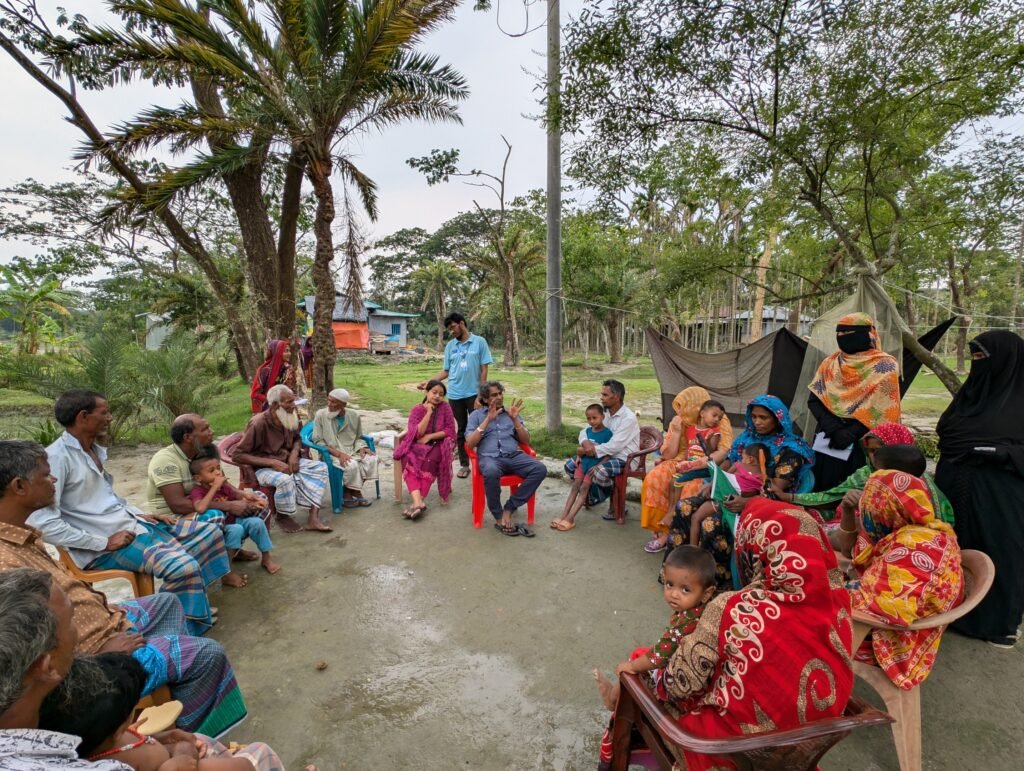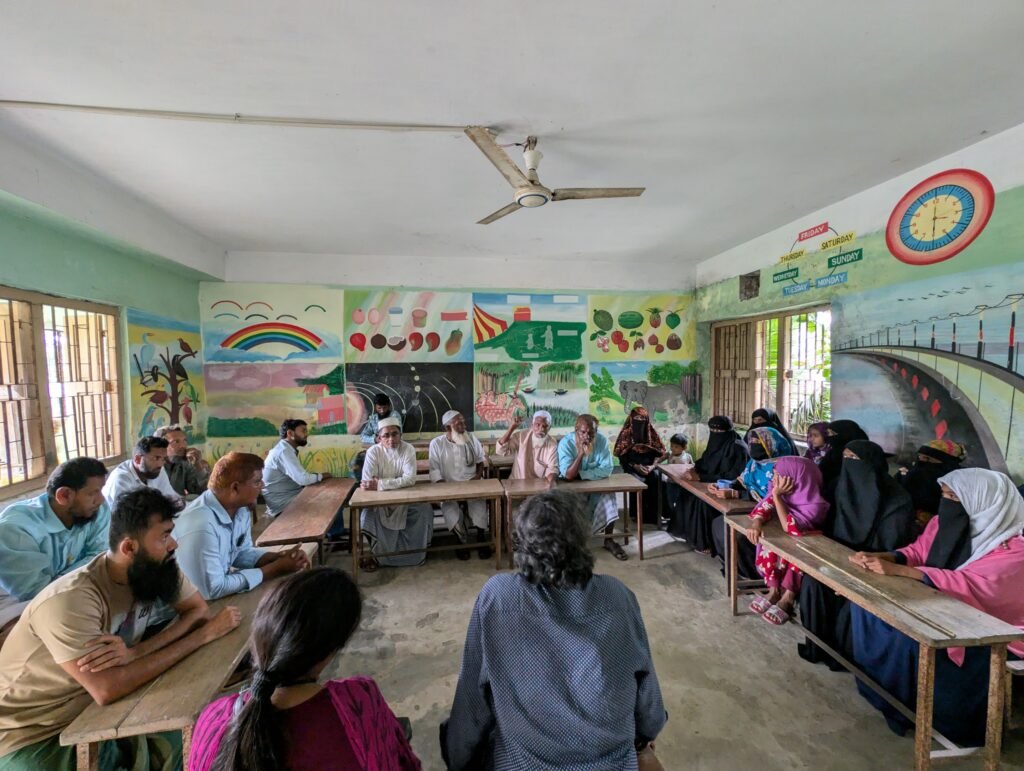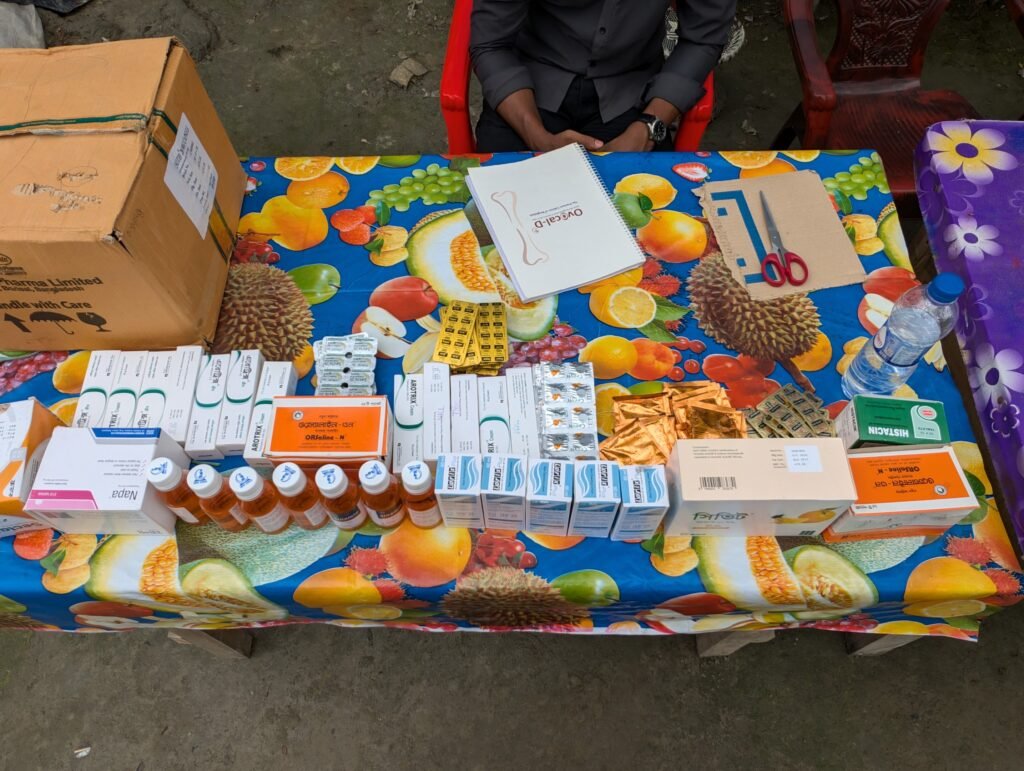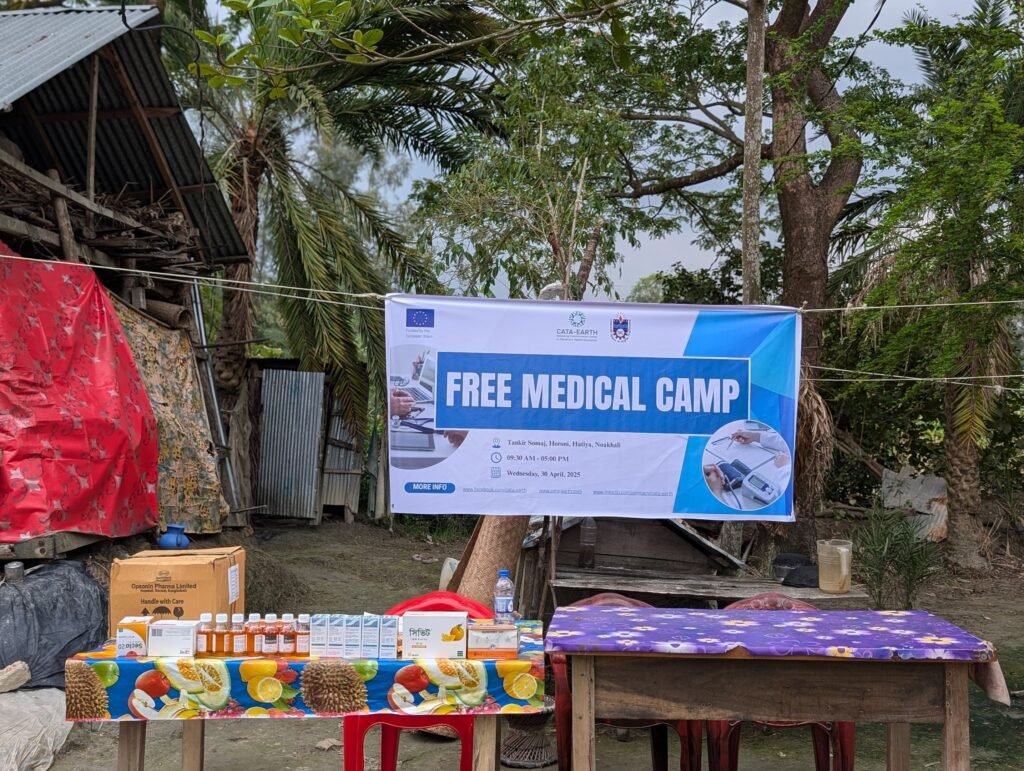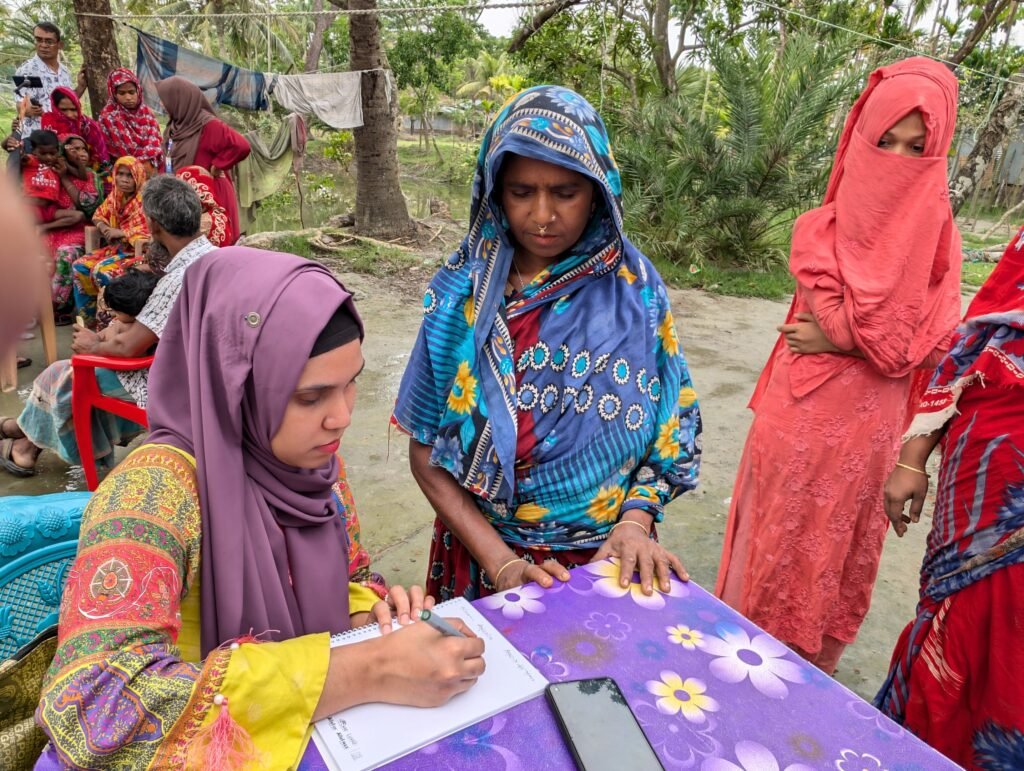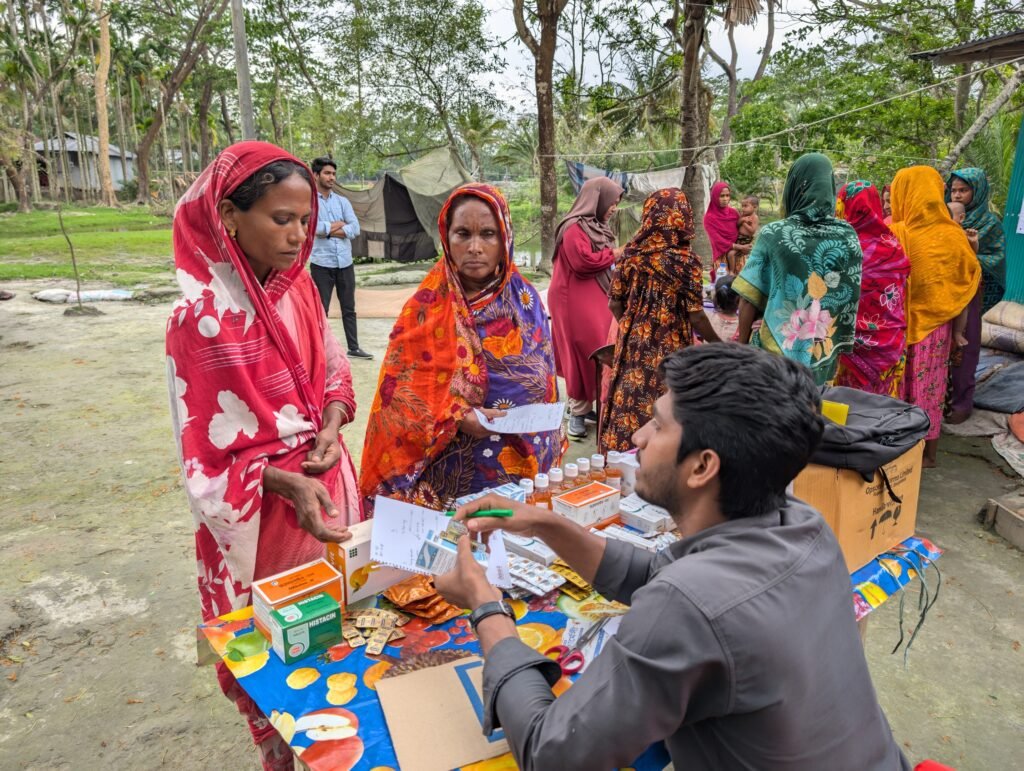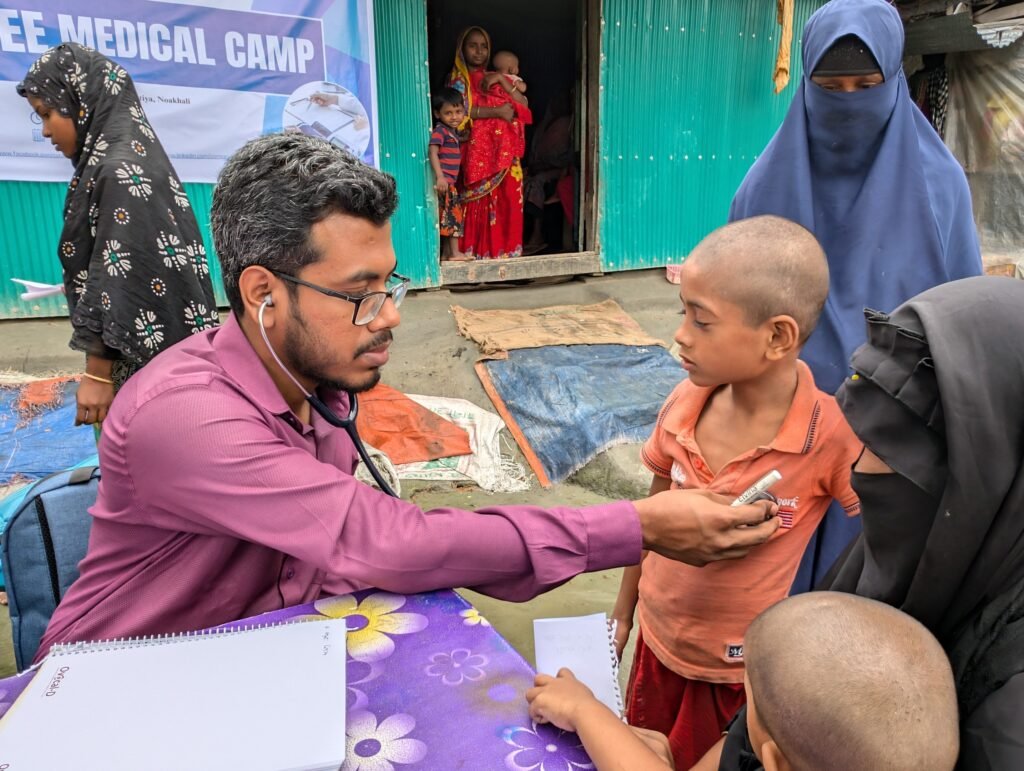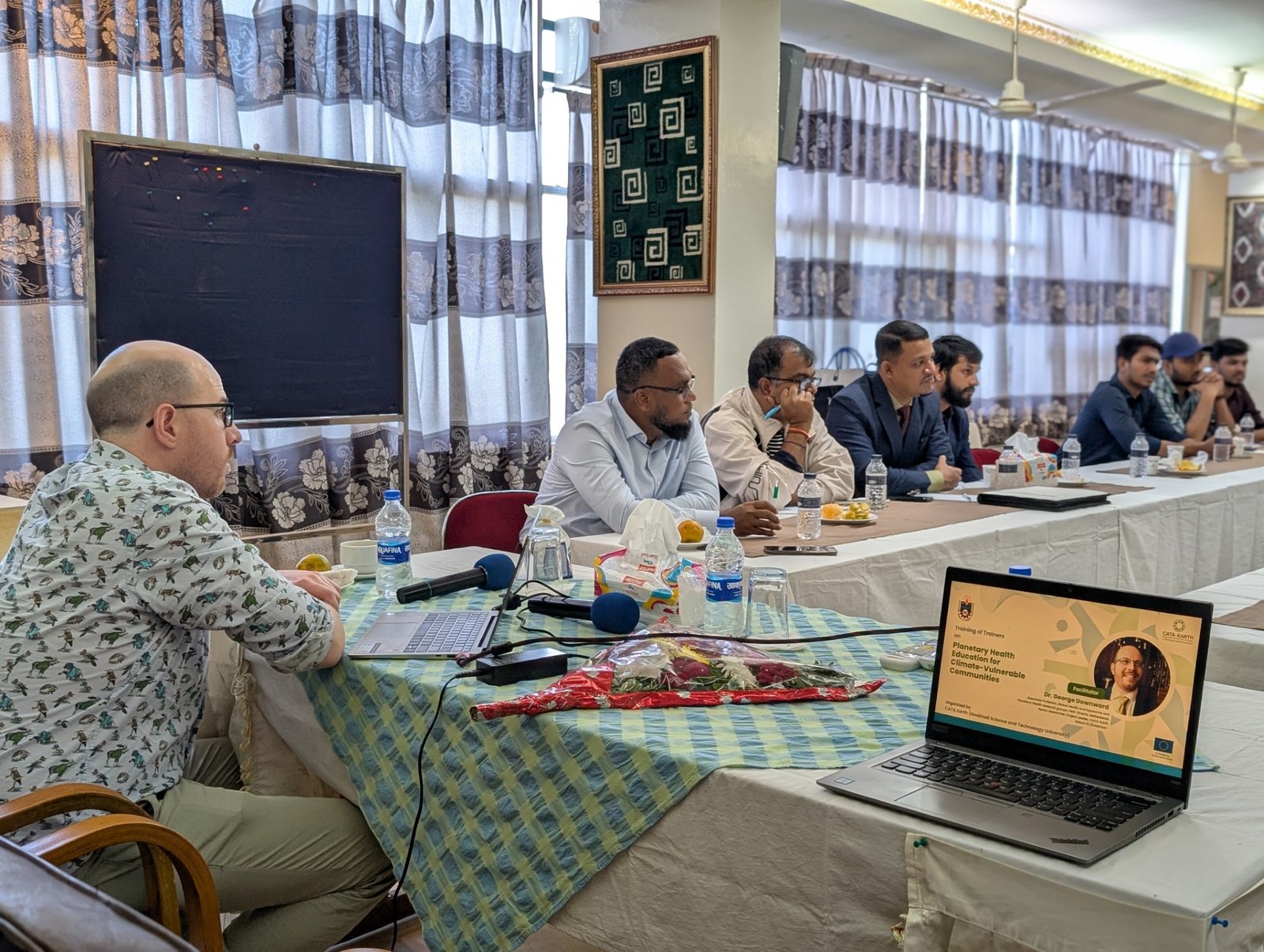In a region where saltwater creeps into drinking wells, storms redraw the horizon, and people quietly endure health problems they cannot name; a unique initiative arrived like a breath of fresh air. The NSTU team, under the EU-funded CATA-Earth project, organized a free medical camp and awareness program at Tankir Somaj, Horoni Union, Hatiya Upazila, sending a powerful message: our health and our planet’s health are inseparably linked.
This wasn’t just another health camp. From dawn to dusk, it became a community mobilization, a listening session, and a climate-health intervention wrapped into one. The message was clear: human health and environmental health are inseparably linked.
— When health meets hope, communities rise —
A Different Kind of Camp: Where Medicine Meets Awareness
With support from physicians from Noakhali Medical College and the dedication of CATA-Earth project leaders, interns, and volunteers, the team provided free medical check-ups and essential medications to a community long underserved. But the initiative extended far beyond clinical care.
In neighborhood courtyards and under shaded trees, the team held two in-depth Focus Group Discussions (FGDs). Residents shared stories of rising blood pressure after consuming salty water, children falling ill after heavy rains, and fears surrounding lightning strikes, heatwaves, and poor sanitation
The team turned these lived experiences into teachable moments, raising awareness about:
- Saltwater intrusion and its silent attack on kidneys and blood pressure
- Unsafe food habits and how to adapt in changing climatic conditions
- Lightning safety practices as erratic weather intensifies
- The critical importance of hygiene and safe water in preventing waterborne diseases
— Conducting FGDs to raise awareness on environmental health risks in Hatiya —
CATA-Earth: A Global Vision Rooted in Local Realities
CATA-Earth is an international partnership uniting university from the Netherlands, Spain, Bangladesh, and Indonesia. Its mission is to embed planetary health—the understanding that human health is inseparable from the planet’s health—into education and community life.
In Bangladesh, NSTU proudly leads this charge, developing community-driven planetary health education models and hands-on projects like this one, ensuring that education leaves the classroom and reaches the courtyards of Hatiya.
Deliverables include:
- Accredited planetary health university courses
- An online course for the world
- A curriculum framework that speaks the language of both science and struggle
- Community-based health interventions tailored to local risks
“This Is What True Planetary Health Action Looks Like”
“Community-based planetary health action looks like — connecting people, public health, and the environment’s health in one heartbeat. It’s not just about treating diseases but tackling the root causes, changing habits, and lighting up awareness where it’s needed most,” said one of the project facilitators from the NSTU team.
The response from the people was overwhelming. Elderly mothers thanked the doctors with tearful eyes. Youth volunteers vowed to spread the word. Local leaders praised the blend of science and empathy.
— Tears and gratitude – a day when health, hope, and humanity came together in Hatiya —
A Beginning, Not the End
This program proved one thing loud and clear: when health meets climate awareness at the community level, change is unstoppable. The NSTU team plans to continue these health and awareness camps, diving deeper into issues like nutrition, reproductive health, clean water management, and disaster readiness in other coastal and disaster-prone pockets of Noakhali.
Because when communities are aware, they demand better. When they’re healthy, they defend their land. And when they unite, they safeguard their future.
To stay connected with the CATA-Earth movement: Website | Facebook | Instagram | LinkedIn


